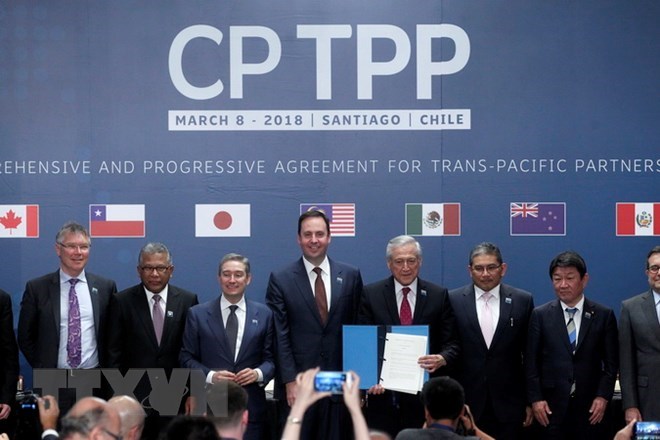All you need to know about the controversial “Comprehensive and Progressive Agreement of Trans-Pacific Partnership”
What is CPTPP

The Comprehensive and Progressive Agreement of Trans-Pacific Partnership (CPTPP) has quietly been dominating the headlines, but amid everything else that is going on, perhaps your knowledge on the topic is slightly fuzzy. Here, we break down all you need to know on the partnership, and why it’s important.
CPTPP is a trade agreement between Australia, Brunei, Canada, Chile, Japan, Malaysia, Mexico, New Zealand, Peru, Singapore & Vietnam. It is currently the largest trade bloc in the region and the third largest worldwide, covering around 13.5 per cent of global merchandise trade.
CPTPP evolved from the Trans-Pacific Partnership (TPP), which never amounted to anything since the US withdrew their membership.
Now, CPTPP has become newsworthy in Thailand as the government is considering to join the trade bloc, an interest that has been fostering since 2018. In May 2020, China has also expressed interest in joining, at a time when it probably will benefit from less dependency on the US.
The argument against CPTPP:
The devil may be in the details. There are several points in the trade agreement that worries the Thai public, resulting in anti-CPTPP hashtags. The International Union for the Protection of New Varieties of Plants (UPOV) will likely mean that there will be certain provisions on Intellectual Property (IP), and the concern is that this could ultimately hurt Thai farmers who will not be able to reuse seeds that contain patented plant materials. We’re not plant experts, but patent rights could lead to less money for the farmers and more expensive produces for consumers.
What else? It could also impact Thailand’s access to affordable medication and impact the compulsory licensing of patented medication, such as those for HIV and cancer. This is an important point, as it could hinder access to medication and lessen government intervention in healthcare for the poor.
The argument for CPTPP:
For others, it’s a no brainer for Thailand to join the trade bloc. Why wouldn’t we want to join the club with countries like Vietnam, Singapore and more to bolster international trade in a time where the economy needs a bit of a kick. Joining CPTPP would attract foreign investment, and boost local production of goods to other countries within the bloc.
This would however, also increase competition as foreign investment would be trickling in, isn’t a fair and competitive economy good though?
CPTPP would also increase our export exposure, and since Thailand is an export dependent economy, having exposure to trade partners such as Canada and Mexico could be beneficial, as we don’t have a trade agreement with them.
Entry into CPTPP would also ensure that our labor laws and environmental policies are updated and of international standards, this would result in long term benefits for Thailand, particularly for our environmental sector, which does need some work.
The Department of Trade Negotiations have run the numbers. Joining the trade bloc would boost Thailand’s gross domestic product (GDP) by 0.12%, or 13.3 billion baht ($409.61 million), with investment up 5.14%, and exports up 3.47%.
Especially after Coronavirus, when countries need to revive their local economy more than ever, it’s necessary to seek new trade pacts and trading partners to remain competitive.
Companies want clarity now:
“We’re inundated with inquiries from foreign investors about the government’s stance on participation in CPTPP,” said Sanan Angubolkul, vice-chairman of the Thai Chamber of Commerce, according to The Bangkok Post.
The cabinet agreed on May 26 to set up a panel to consider whether Thailand should sign up to the trade agreement, but not much clarity has been given since then.




